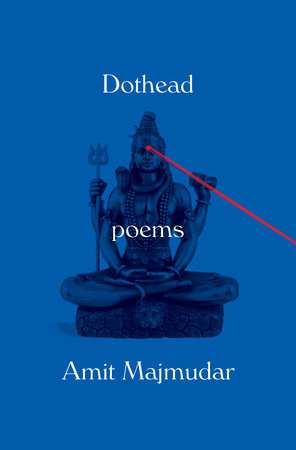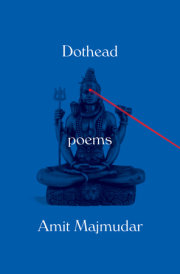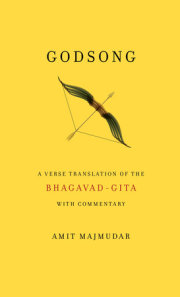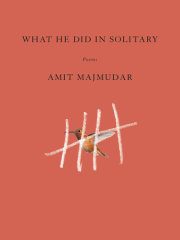Dothead Well yes, I said, my mother wears a dot.
I know they said “third eye” in class, but it’s not
an
eye eye, not like that. It’s not some freak
third eye that opens on your forehead like
on some Chernobyl baby. What it means
is, what it’s
showing is, there’s this unseen
eye, on the inside. And she’s marking it.
It’s how the X that says where treasure’s at
is not the treasure, but as good as treasure.—
All right. What I said wasn’t half so measured.
In fact, I didn’t say a thing. Their laughter
had made my mouth go dry. Lunch was after
World History; that week was India—myths,
caste system, suttee, all the Greatest Hits.
The white kids I was sitting with were friends,
at least as I defined a friend back then.
So wait, said Nick, does
your mom wear a dot?
I nodded, and I caught a smirk on Todd—
She wear it to the shower? And to bed?—
while Jesse sucked his chocolate milk and Brad
was getting ready for another stab.
I said, Hand me that ketchup packet there.
And Nick said, What? I snatched it, twitched the tear,
and squeezed a dollop on my thumb and worked
circles till the red planet entered the house of war
and on my forehead for the world to see
my third eye burned those schoolboys in their seats,
their flesh in little puddles underneath,
pale pools where Nataraja cooled his feet.
Ode to a Drone Hell-raiser, razor-feathered
riser, windhover over
Peshawar,
power’s
joystick-blithe
thousand-mile scythe,
proxy executioner’s
proxy ax
pinged by a proxy server,
winged victory,
pilot cipher
unburdened by aught
but fuel and bombs,
fool of God, savage
idiot savant
sucking your benumbed
trigger-finger
gamer’s thumb
His Love of Semicolons The comma is comely, the period, peerless,
but stack them one atop
the other, and I am in love; what I love
is the end that refuses to stop,
the promise that something will come in a moment
though the saying seem all said;
a grammatical afterlife, fullness that spills
past the full stop, not so much dead
as taking a breather, at worst, stunned;
the sentence regroups and restarts,
its notation bespeaking momentum, its silence
dividing the beats of a heart;
Copyright © 2016 by Amit Majmudar. All rights reserved. No part of this excerpt may be reproduced or reprinted without permission in writing from the publisher.









